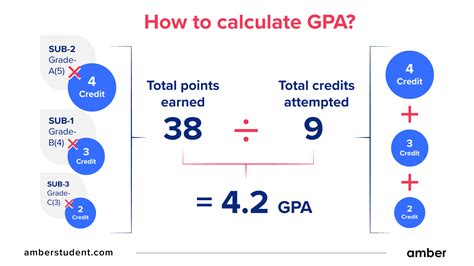Withdrawing from a course can be a difficult decision, but it’s one that many students make at some point during their academic careers. If you’re considering withdrawing from a course, it’s important to understand how it will affect your GPA.

How Does a Withdraw Affect Your GPA?
When you withdraw from a course, the grade you receive is a “W.” A “W” does not count towards your GPA, but it can still have a negative impact on your academic record.
For example, if you withdraw from a course with a C, your GPA will not be affected. However, if you withdraw from a course with an F, your GPA will be lowered.
In addition, some schools have a policy of counting “W” grades as failing grades. This means that if you withdraw from a course, you could end up with a lower GPA than you would have if you had simply failed the course.
Should You Withdraw from a Course?
The decision of whether or not to withdraw from a course is a personal one. There are many factors to consider, such as your academic record, your current workload, and your future goals.
If you’re struggling in a course, withdrawing may be the best option. However, it’s important to weigh the pros and cons carefully before making a decision.
Here are some questions to ask yourself before withdrawing from a course:
- Am I struggling academically or is it something else, such as a personal or financial problem?
- Can I catch up on the coursework if I stay in the course?
- How will withdrawing from the course affect my GPA?
- What are my future goals and how will withdrawing from the course affect them?
Common Mistakes to Avoid
When withdrawing from a course, there are a few common mistakes to avoid:
- Withdrawing too late. Most schools have a deadline for withdrawing from courses. If you withdraw after the deadline, you may receive a failing grade.
- Withdrawing from too many courses. Withdrawing from multiple courses can hurt your GPA and make it difficult to graduate on time.
- Not talking to your advisor. Before withdrawing from a course, talk to your advisor to get their advice. They can help you weigh the pros and cons of withdrawing and make the best decision for your academic career.
Conclusion
Withdrawing from a course can be a difficult decision, but it’s one that many students make at some point during their academic careers. If you’re considering withdrawing from a course, it’s important to understand how it will affect your GPA and your academic record. By carefully considering the pros and cons, you can make the best decision for your future.
How to Calculate Your GPA
Your GPA is calculated by dividing the total number of grade points you have earned by the total number of credit hours you have attempted. Grade points are assigned to each letter grade as follows:
- A = 4.0
- A- = 3.7
- B+ = 3.3
- B = 3.0
- B- = 2.7
- C+ = 2.3
- C = 2.0
- C- = 1.7
- D+ = 1.3
- D = 1.0
- F = 0.0
For example, if you have earned a total of 120 grade points and have attempted a total of 30 credit hours, your GPA would be 4.0.
GPA Requirements for Scholarships
Many scholarships have GPA requirements. The minimum GPA required for a scholarship varies depending on the scholarship program. For example, some scholarships may require a GPA of 3.5 or higher, while others may require a GPA of 4.0 or higher.
If you are interested in applying for a scholarship, be sure to check the GPA requirements carefully. You can find the GPA requirements for most scholarships on the scholarship website or in the scholarship application materials.
GPA Requirements for Graduate School
Many graduate schools have GPA requirements for admission. The minimum GPA required for admission to graduate school varies depending on the school and the program. For example, some graduate programs may require a GPA of 3.0 or higher, while others may require a GPA of 3.5 or higher.
If you are interested in applying to graduate school, be sure to check the GPA requirements carefully. You can find the GPA requirements for most graduate programs on the school website or in the graduate application materials.
How to Improve Your GPA
If your GPA is lower than you would like it to be, there are a few things you can do to improve it. Here are a few tips:
- Study harder. This may seem like an obvious tip, but it’s one of the most important things you can do to improve your GPA. Make sure you are spending enough time studying and that you are studying effectively.
- Attend class regularly. Attending class regularly will help you stay on top of the material and avoid falling behind. It will also give you the opportunity to ask questions and get help from your professor.
- Get help from a tutor. If you are struggling in a class, consider getting help from a tutor. A tutor can help you understand the material and improve your grades.
- Take advantage of office hours. Office hours are a great opportunity to get help from your professor outside of class. You can ask questions, get clarification on the material, and get feedback on your work.
- Don’t be afraid to ask for help. If you are struggling, don’t be afraid to ask for help from your professors, TAs, or classmates. There are many people who are willing to help you succeed.
Conclusion
Improving your GPA takes time and effort, but it is definitely possible. By following these tips, you can improve your GPA and reach your academic goals.
